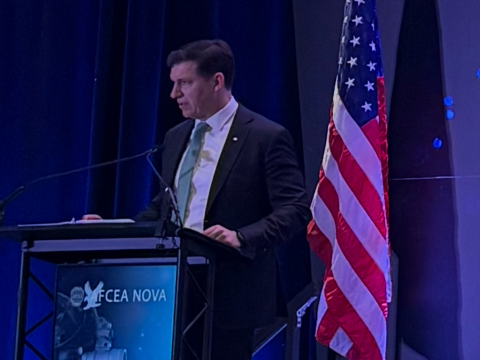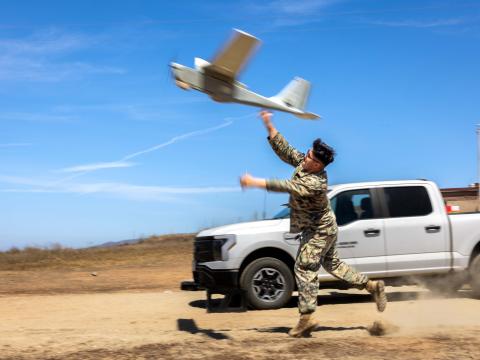Iraq, Russia, Defense Hot Topics for U.S., Australia Dialogue
Foreign fighters, general Middle East unrest and how to handle the unfolding events in Ukraine led interests during the Australia-United States Ministerial Consultation 2014 discussion.
Foreign fighters, general Middle East unrest and how to handle the unfolding events in Ukraine led interests during the Australia-United States Ministerial Consultation (AUSMIN) 2014 discussion this week. The issues have particular relevance for Australians recently, who lost 38 citizens in the downing of Malaysian Airlines Flight MH-17, and have dealt with photos of one its citizen families, including a 7-year-old child, holding a severed head as its fights in Iraq.
The biggest concern for Australia, the United States and other countries is that such fighters will return to their home countries armed with the skills to carry out domestic attacks. “That truly poses one of the most significant threats that we’ve seen in a very long time,” said Julie Bishop, the Australian minister of foreign affairs, during remarks to the press after the consultation. She also stated that “a significant number” of Australians are taking part in the terror campaigns in Iraq and Syria. Americans are reported to be participating as well.
How to combat the threat led the discussion of counterterrorism between the two nations. The allies plan to assemble a compendium of the best practices in the world regarding those foreign fighters and to bring the results to the United Nations meeting next month. Both Australia and the United States offer humanitarian assistance to Iraqis.
Turning to Russia, the nations expressed their displeasure with actions in Crimea and Russia’s role in the Malaysian Airlines crash. However, U.S. Secretary of State John Kerry said, “We need to have the complete investigation, obviously, to legitimize whatever steps are going to be taken as we go down the road.” Australia supports the investigation, but Bishop’s remarks on the issue were stronger and more emotional. Perpetrators must be brought to justice, she stated, adding later that, “I also hope I made very clear that any intervention by Russia into Ukraine under the guise of a humanitarian crisis would be seen as the transparent artifice that it is, and Australia would condemn in the strongest possible terms any effort by Russia to enter Ukraine under the guise of carrying out some sort of humanitarian mission.”
In bilateral actions, the countries signed the Force Posture Agreement that legally confirms the presence of U.S. Marines and airmen in the Asia-Pacific country. It also opens additional opportunities for bilateral, trilateral and regional activities.
Defense cooperation could enhance areas such as maritime capacity building and humanitarian assistance/disaster relief. The countries requested that their respective officials develop practical options to enhance naval training exercises in Australia and the region. They also committed to continue to work together to counter the threat of ballistic missions in the area, including the establishment of a bilateral working group to examine options for potential Australian contributions.
The two nations are taking steps toward creating combined space operations and plan to do conduct more practical cooperation in that domain. Progress already has been achieved in establishing the C-band space surveillance radar and DARPA Space Surveillance Telescope in Australia.
In terms of the U.S. pivot to the Asia Pacific, it is through the Trans-Pacific Partnership—a trade agreement under negotiation by the United States and 11 other countries throughout the Asia-Pacific region—the United States’ rebalance to the area finds its economic expression, Bishop said. The partnership will be key to opening and liberalizing markets in the region. Kerry added that the country must deepen economic engagement in the Asia Pacific and help “to bring about a rule of law-based structure where everybody understands the rules and where it is a race to the top, not to the bottom.”



Comments